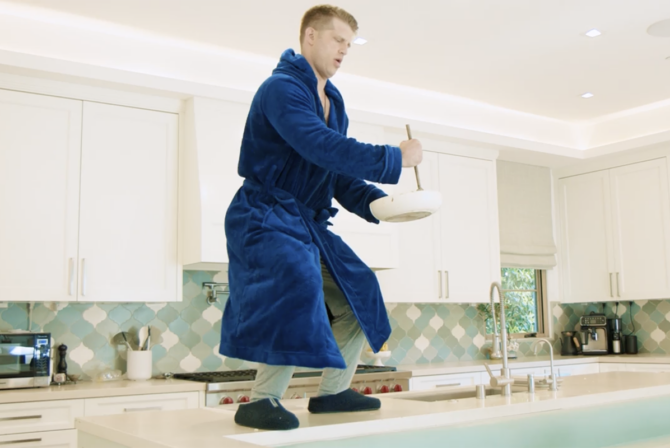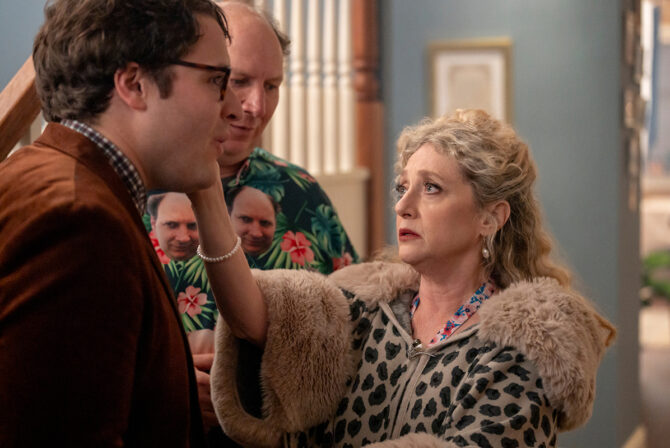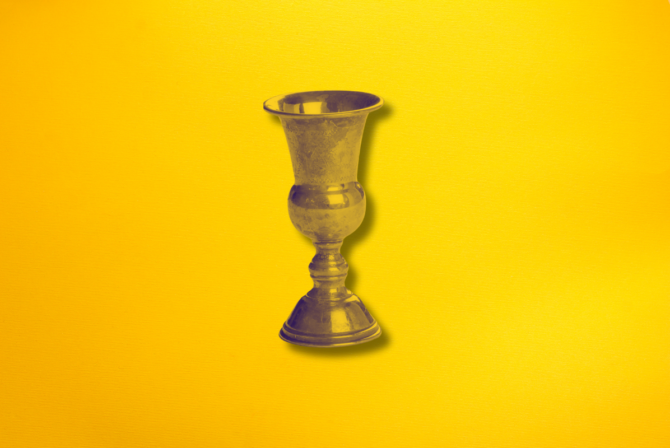This post is part of our Torah MOMentary series. This Shabbat we read Parashat Kedoshim. To read a summary of the portion and learn more, click here.
This week Sylvie turned 2. On her birthday, she woke up, talked to herself for a while, then called out “Mama, mama!”
I went to pick her up from her crib and as soon as she saw me she stood up and screamed, for the first time ever: “Go away, mama!”
Terrible twos, right on schedule.
After a brief explanation that “Go away” isn’t nice, and the offer of orange juice, I was back in my daughter’s good graces. My husband heard the whole exchange, and as Sylvie and I passed him on the way to the kitchen, he gave me that raised-eyebrow look I suspect is common to parents everywhere: a cocktail of apprehension, resignation, and humor.
Later that day, reading this week’s Torah portion, I had to smile at the timing. Kedoshim is all about holiness. It tells us to be holy, then gives us a long list of recommended paths to holiness, starting with “Honor your father and mother.”
I’d always thought of this from the daughter’s point of view before. Now it was my turn to be the mother.
Besides top billing in the Torah’s list of how to be holy, honoring one’s father and mother appears elsewhere in Torah as no. 5 on the Ten Commandments. In other words, it’s a big deal.
It’s also considered to be one of the hardest commandments to observe fully. There’s a whole section of the Talmud where the rabbis obsess about how precisely to honor your parents. The recommendations they come up with are increasingly ridiculous, to the point that Rabbi Yochanan chimes in to say he considers himself lucky to have been orphaned at birth, so he does not have to try to fulfill this impossible mitzvah!
There’s a whole post waiting to be written about how honoring my parents is different now that I’m a parent. But that’s for another day. Back to my daily reality, as the mother of a 2-year-old, reading this commandment is almost…humorous.
What does honoring your father and mother even mean for a toddler, who isn’t quite ready to share her bucket at the sandbox?
Being human and relatively new to this, I have to admit that one little part of me that can’t help but flinch when I hear “Go away, Mama!” from my kid. And yes, I know better than to gloss over my responsibility to teach her to be kind and respectful, even at this young age–that would be doing both of us a disservice.
But I also know, deep down, not to worry about it. Sylvie’s just doing her job as a self-respecting 2-year-old. These little explosions are “developmentally appropriate”–clinical language for “it’s cool, this too will pass.”
And, for better or worse, this is just the beginning. As her parents, Aaron and I are on the front line of Sylvia’s growing heart and mind. Like any human, she’s going to have to learn how to negotiate the daily mess of life. She’ll have to figure out how to endure disappointment, limitations, and–perhaps hardest of all–her own internal emotions. I imagine this will continue right through the teenage years. And as often as not, if we’re doing our jobs, we’ll be right there to absorb (or gracefully dodge) the blows.
Of course I want to teach Sylvie about honoring her parents when it’s time, but at this point in her life, a lecture about mitzvot would be utterly ridiculous. So, what’s a toddler parent to do?
I have a feeling she’ll learn better by example than explanation. And that means it’s up to us to show her how to honor people, including her mother and father. Which leaves me with three things to do:
1. To love and honor my own parents. (Working on it!)
2. To love and honor Sylvia. To do my best to lead her towards empathy and kindness, while also accepting where she is in her growth as a human at this moment.
3. To love and honor myself as her mother. To do my best to become more patient and kind, while also accepting where I am in my growth as a human at this moment.
This year, that’s what holiness means to me.
To read the previous posts in our Torah MOMentary series, click here.
Like this post? Get the best of Kveller delivered straight to your inbox.







